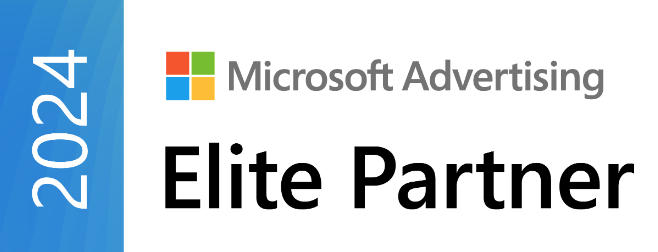Google Updates
Algorithm updates chronologically
1Panda– Launched: Feb 24, 2011 – Rollouts: ~ monthly
2Penguin– Launched: April 24, 2012 – Rollouts: May 25, 2012; Oct 5, 2012; May 22, 2013; Oct 4, 2013; Oct 17, 2014; September 27, 2016; October 6, 2016; real – time since
3Pirate– Launched: Aug 2012 – Rollouts: Oct 2014
4Hummingbird– Launched: August 22, 2013
5Pigeon– Launched: July 24, 2014 (US) – Rollouts: December 22, 2014 (UK, Canada, Australia)
6Mobile Friendly Update– Launched: April 21, 2015
7RankBrain– Launched: October 26, 2015
8Possum– Launched: September 1, 2016
9Fred– Launched: March 8, 2017
Panda
What it penalizes:
- Duplicate content
- Plagiarism
- Thin content
- User-generated spam
- Keyword stuffing
- Poor user experience
How to stay safe:
- Internally duplicated content is one of the most common Panda triggers – so check for duplicate content across your site regularly.
Take down the duplicate pages, or use a 301 redirect or canonical tag. Alternatively, you can block the pages from indexing with robots.txt or the noindex meta tag.
- External duplication is another Panda trigger – so check for plagiarism.
If you suspect that some of your pages may be duplicated externally, it’s a good idea to check them with Copyscape. Copyscape gives some of its data for free (for instance, it lets you compare two specific URLs), but for a comprehensive check, you may need a paid account.
- Check for content that provides little original value aka “thin content”.
Word count on any page is tied to the purpose of the page and the keywords that page is targeting. Too many thin content pages (<250 words) may get you in trouble.
- Stay clear of keyword stuffing
Over-optimization of a given page element for a keyword is a bad practice that should be avoided.
Penguin
Since late 2016 Penguin got incorporated in the core algorithm and is now applied to search results in real time. Penalties and recovery are now faster.
What it penalizes:
- Links coming from poor quality, “spammy” sites
- Links coming from sites created purely for SEO link building (PBNs)
- Links coming from topically irrelevant sites
- Paid links
- Links with overly optimized anchor text
How to stay safe:
- Look out for any unusual spikes in your link profile
A sudden increase of bad backlinks could be a problem. Monitor link profile growth regularly.
- Check for penalty risks
The stats that Penguin likely looks at are incorporated into SEO SpyGlass and its Penalty Risk formula.
- Get rid of harmful links
Contacting the webmasters of the linking sites could be a tedious work. A good alternative is to disavow the links using Google’s Disavow tool. This way, you’ll be telling Google to ignore those links when evaluating your link profile.
Pirate
What it penalizes:
- Pirated content
- High volume of copyright infringement reports
How to stay safe:
Don’t distribute copyrighted content without the owner’s permission.
Hummingbird
What it effects:
- Exact-match keyword targeting
- Keyword stuffing
How to stay safe:
- Focus on related searches, synonyms and co-occurring terms to diversify your content. Don’t rely only on short-tail terms you’d get from Google AdWords.
- Speak the same language as your audience.
- Try to sound like a human. Search engines can process natural language now.
Pigeon
What it penalizes:
- Poorly optimized pages
- Improper setup of a Google My Business page
- NAP inconsistency
- Lack of citations in local directories
How to stay safe:
- Do your on-page optimization properly.
- Set up a Google My Business page.
- Make sure your NAP is consistent across your local listings.
- Submit your business to relevant local directories.
Mobile Friendly Update (aka Mobilegeddon)
What is at risk:
- Lack of a mobile version of the page
- Improper viewport configuration
- Illegible content
- Plugin use
How to stay safe:
- Implement responsive design.
Take the mobile friendly test to make sure you pass Google’s criteria
RankBrain
What it penalizes:
- Lack of query-specific relevance features
- Poor user experience
How to stay safe:
- Pay attention on your pages’ user experience factors in Google Analytics, particularly Bounce Rate and Session Duration and try to provide content that valuable.
- Spy on your competitors for on page features that can have a positive effect on user experience.
Possum
When you are at risk:
- Sharing a physical address with a similar business
- When you have competitors whose business address is closer to the searcher’s location
How to stay safe:
- Do geo-specific rank tracking. After Possum, the location from which you’re checking your rankings plays an even bigger part in the results you get.
- Expand your list of local keywords. Since Possum resulted in greater variety among the results for similar-looking queries, it’s important that you track your positions for every variation separately. it’s becoming even more important to optimize your listings specifically for local search.
Fred
What it penalizes:
- Low-value, ad-centered content
- Thin, affiliate-heavy content
Advice for staying safe – watch out for thin content.


